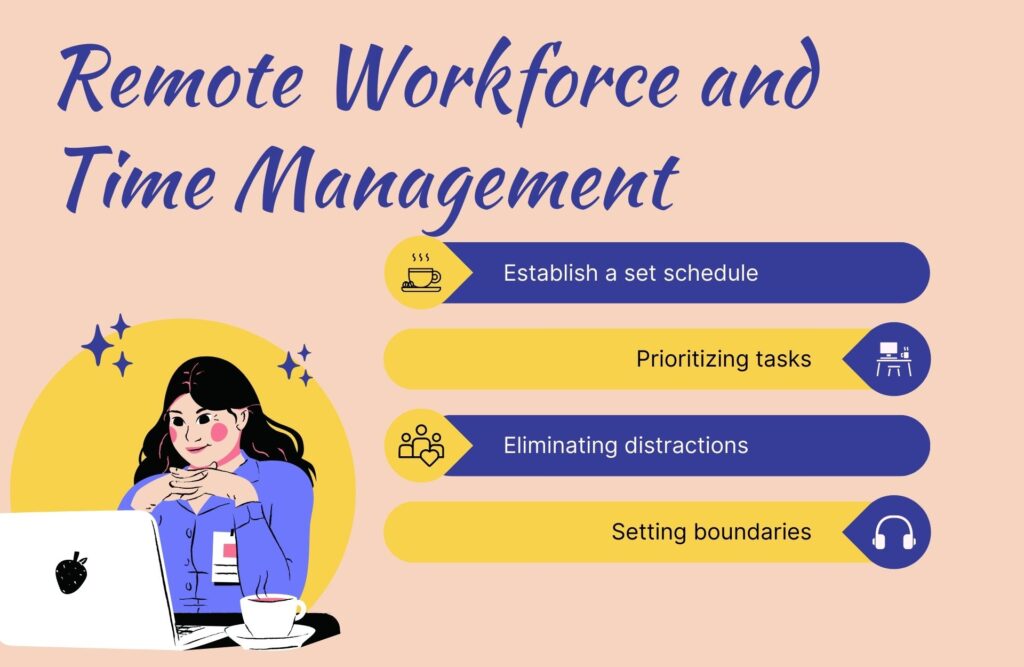Remote work has increased significantly over the past decade. Additionally, COVID-19 has forced most businesses to send every employee home. As a result of these shifts, the corporate landscape as we once knew it has changed.
Before the pandemic, working from home was an impossible dream for many professionals with full-time jobs. Today, however, all business — including recruiting, day-to-day work, meetings and presentations — is conducted remotely.
Knowing which remote work competencies are most important and having those skill sets will be one of the most important changes for employees looking to work remotely.
While thriving in a work-from-home environment is achievable, today’s workforce will require a variety of different capabilities to make it happen. As a result, businesses are already changing to adapt to this brave new environment.
Having a relevant skill set will determine how quickly hiring managers and HR teams select you as the right candidate to fill open positions.
This article will help you understand the top 7 skills you should have before applying for a remote job. However, before diving into the topic, it is crucial to understand why remote worker skills are essential.
1.Communication skills
Communication is even more important when working remotely than in an office setting. Strong communication skills are especially needed today, as much communication takes place via email, chat, and other written forms.
Since most remote businesses today rely on written documentation to onboard, communicate, and expand employees, excellent writing skills are a must.
Therefore, in addition to oral communication, being able to express oneself clearly in writing becomes one of the most important remote skills.
Video conferencing is an excellent way to communicate with remote team members in real time. It’s not as scalable as writing, though, especially when multiple different time zones are involved. Therefore, improving written communication skills is critical to succeeding in a remote environment.
Useful articles: Top 8 Remote Collaboration Tools for Teams
2.Collaboration
Working remotely doesn’t mean operating in isolation. Since you are still an employee of a large organization, you will have to rely on other people to complete key tasks. Collaborating and coordinating without a specific location can be more complicated. Therefore, it is crucial to take the necessary initiative when working remotely. This is another reason remote businesses invest heavily in their programming and technology options.
Collaboration is difficult when you’re working remotely, but it’s an important skill one must have. Therefore, skills such as cooperation and collaboration are prerequisites and undoubted skills for all remote workers.
Fortunately, most businesses provide their remote employees with access to relevant collaboration tools. These do make the job easier, but in many cases, there is a learning curve involved.
3.Ability to work independently
Employers are interested in individuals with a strong work ethic and the technical prowess needed to do the job. When you’re part of a remote team spread across multiple locations and multiple time zones, being able to work autonomously becomes critical. Remote working relationships depend heavily on trust.
If you are about to transition to a remote team, you must know that most employers expect employees to work independently because they cannot keep track of everything around them.
You need to make decisions independently when needed so that such bottlenecks don’t disrupt overall operations. This requires a clear mind and keen problem-solving skills.
4. Organizational skills
“Organizational skills” does not mean adherence to a strict timetable or work schedule. The flexibility of working from home is one of the main reasons people decide to transition to remote work. However, this should not be misinterpreted as showing casual behaviour.
Even though you can work from anywhere, you must be organized and take steps to manage your time and performance well. Remember, if there is no monitoring, it is entirely your responsibility to keep your assigned workplace in order.
Learning to be an independent and reliable employee is an important aspect of working from home. But to achieve these goals, you must be able to plan and schedule your efforts. You must have the skills to identify priorities, tasks and to-do lists, and organize yourself to ensure that work is done efficiently and on time.
5. Time management
When flexible hours are first allowed, those who were previously restricted to fixed hours can have a hard time managing their time. When someone doesn’t have to work a seven-hour shift or a full week, time can easily slip by them.
Having absolute ownership of your time is both a luxury and a drawback of working remotely. Performance management and daily check-ins are typical office routines. However, when working virtually, you must learn to prioritize your responsibilities yourself.
So, to thrive in a remote environment and stay with a company long-term, you need to have project management skills and establish a daily schedule to balance your tasks, such as doing critical tasks first and then other tasks.
Striking the perfect work-life balance is also an important skill that covers the broad field of time management.
Useful articles: Remote Workforce and Time Management

6. Self-Motivation
When you work remotely, no one is paying attention to your daily activities. Since you are isolated, it is up to you whether the project moves forward or stalls. If you do not complete the work assigned to you, the deadline will approach and you will have nothing to submit. Therefore, self-motivation is a must for remote employment. Thus, you will be able to meet deadlines and improve as a remote employee.
To stay focused, you can plan your schedule and daily activities. Based on the schedules you and your colleagues have access to, you can also estimate schedules. A dedicated home office can be a smart investment as it buffers distractions from the rest of the house.
7. Team player Skills
When moving to remote work, you must collaborate with your team in addition to working in isolation. Today, remote workers are great problem solvers and can function well with the most basic instructions. However, this alone is not enough to keep any project on track without the ability to share the necessary input with the rest of the team.
Communicating well with teammates, helping them when needed, and knowing when to ask for help are all basic soft skills that must be developed in order to keep things running smoothly.
In Conclusion
The pandemic has changed the way people work today. While some businesses may not always use remote workers, they are still employing more customizable options, such as adding regular work-from-home breaks. As a result, employers are looking for those who are used to working remotely. Therefore, you should adapt and pay attention to all these remote employee skills for your future.
Working from home has several benefits, including mobility, flexibility, and not having to commute. However, to be successful in remote work, you must have the necessary skills and knowledge. This article presents a comprehensive list of the top 10 skills you need to excel in the virtual employment world to help you excel.






